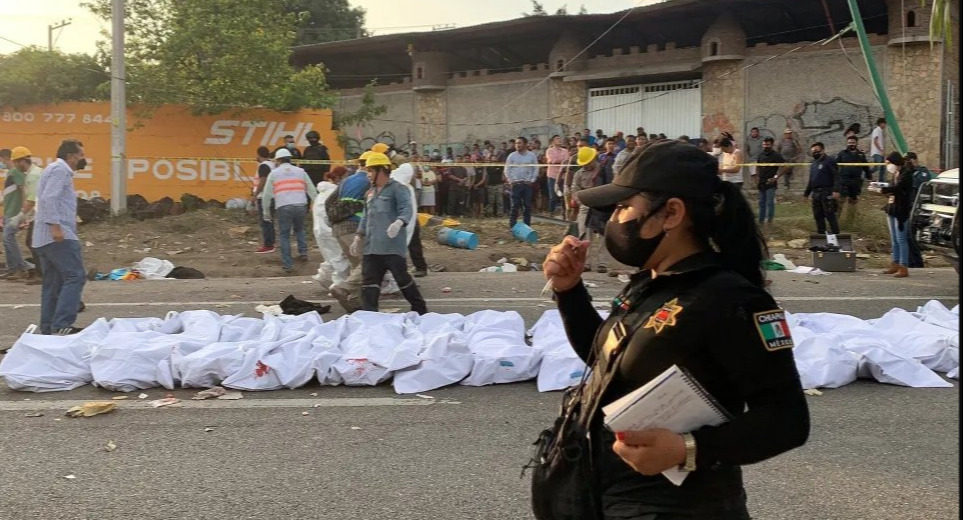
PHOTO: CARLOS LÓPEZ / EFE
By Guillermo Alvarado
Much consternation and multiple reactions were aroused by the unfortunate traffic accident that occurred in Chiapas, southeastern Mexico, where 55 undocumented migrants lost their lives, 73 were injured, several of them seriously, and only 24 were unharmed.
According to investigations, most of the victims are from Guatemala, another group is from Honduras and there are also some people from the Dominican Republic and Ecuador, all of whom were trying to reach the border with the United States to try to enter that territory.
The Guatemalan government announced the setting up of an immediate police reaction force and the Mexican Foreign Minister, Marcelo Ebrard, said that a working group was formed by the countries concerned by the tragedy, including the United States.
The main objective of these initiatives is to search for those responsible for the accident and to combat the "coyotes", as human traffickers who charge large sums of money to transport undocumented migrants are called in this area.
These groups have evolved as the number of those who aspire to reach the northern power has grown. A few years ago, the lone guide, known as "pollero", was left behind and now they operate as mafias linked to other forms of organized crime.
Of course it is important to eradicate this inhumane and dirty business, which often ends with the death of those who pay to make their dreams come true, but we must not lose sight of the fact that traffickers are a symptom and not the cause of a much more serious and deeper problem.
To think that ending the coyotes will eradicate migration would be, to say the least, a truly endearing naivety.
The causes are structural, among them poverty, unhealthy conditions, lack of educational opportunities, scarcity of jobs with decent wages, corruption that diverts funds indispensable for development, and the violence that is the direct daughter of misery.
Migrants risk their lives on such a dangerous journey precisely because if they stay at home they are much more likely to lose their lives.
The COVID-19 pandemic and the increasingly intense and frequent natural phenomena caused by climate change have made matters worse.
If migration is a human right, it should be orderly, regulated, safe and voluntary, not as it is now, which is a narrow exit door to an almost dead-end situation, a flight to nowhere and, for many, a ticket to death.

